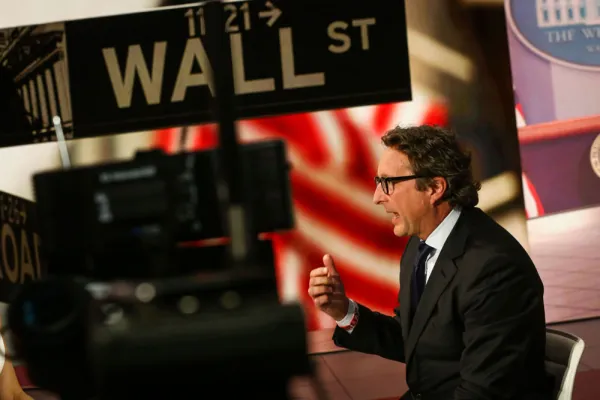Another hedge fund manager has been banned from the investment world. Philip Falcone and his hedge fund firm, Harbinger Capital Partners, have agreed to pay more than $18 million, admit wrongdoing and to be barred from the securities industry for at least five years as part of a settlement with the Securities and Exchange Commission stemming from enforcement actions in June 2012. The regulator had accused the one-time high-flying hedge fund manager — who earned $1.7 billion and made his debut on the Rich List in 2007 by betting against sub-prime mortgages — of improperly using $113 million in fund assets to pay his personal taxes, secretly favoring certain customer redemption requests at the expense of other investors, and conducting an improper “short squeeze” in bonds issued by a Canadian manufacturing company.
“Falcone and Harbinger engaged in serious misconduct that harmed investors, and their admissions leave no doubt that they violated the federal securities laws,” said Andrew Ceresney, co-director of the SEC’s Division of Enforcement. The new SEC regime, headed by former prosecutor Mary Jo White, had pledged to wring admissions of guilt from those who agree to civil settlements. Under the deal, Falcone must pay about $6.5 million in disgorgement, $1 million in prejudgment interest, and a $4 million penalty. The Harbinger entities are required to pay a $6.5 million penalty.
Falcone agreed to be barred from associating with any broker, dealer, investment adviser, municipal securities dealer, municipal advisor, transfer agent, or nationally recognized statistical rating organization, with a right to reapply after five years. He will still be able to help liquidate his hedge funds under the supervision of an independent monitor.
Does Monday's settlement potentially impact Falcone's status as a significant minority owner and board member of the Minnesota Wild professional hockey team? A spokesman says no. According to a statement e-mailed to Alpha from the Minnesota Wild, “The Minnesota Wild does not have any relationships with Mr. Falcone’s hedge fund or other businesses. Today’s news does not affect the Minnesota Wild in any way.”
An NHL spokesman adds in an e-mail statement: "We don't have any immediate reaction. We will look at the settlement and talk to Mr. Falcone before deciding what effect, if any, these developments will have on Mr. Falcone and/or his minority ownership position in the NHL."
—
Brevan Howard’s woes continue. According to a published report, two credit traders recently left the London-based macro hedge fund firm. They are Wayne Leslie, who spent less than a year with the firm after coming over from Goldman Sachs Group, and Jason Feasey, formerly with Bank of America, who specializes in structured credit. Bloomberg reports that at least one dozen traders have left Brevan Howard since the end of May alone as the firm’s flagship fund has struggled. According to publicly available documents, BH Macro Ltd., a closed-ended investment company which invests substantially all of its assets in the Brevan Howard Master Fund, lost more than 1 percent this month through August 9, trimming its gains for the year so far to just 2 percent. It lost about 3 percent in June and a little less than 1 percent in July.
—
An estimated $5.7 billion more flowed into hedge funds in July than investors took out during the month, the best monthly inflow in the last six months, according to the latest data from industry tracker eVestment. The sharp rebound from the prior month was driven by a strong interest in macro funds, which took in a net inflow of $7.6 billion in July. That was the largest amount to pour into the strategy since January 2010 and second best showing since July 2008, two months before the financial markets went into a freefall. On the other hand, credit funds suffered more redemptions than inflows of money. “Redemptions were led by MBS strategies, which had their second consecutive month of redemptions and their largest since 2006,” eVestment pointed out in a new report. This is not surprising since the MBS fund redemptions in June and July came after the groups’ largest losses in more than four years, the data firm adds.
—
Davidson Kempner reported a 5.4 percent stake in Quinpario Acquisition, a special purpose acquisition company that went public late last week. D-K is the second hedge fund firm to take a least a 5 percent stake in the company, which said it plans to focus on acquiring companies in the specialty chemicals and performance materials sectors, primarily with an enterprise value of up to $1 billion. Last week, we reported that Brian Taylor’s Pine River Capital Management reported a 5.6 percent stake in Quinpario.
—
Shares of Dollar General surged more than 3 percent Monday after J.P. Morgan Chase upgraded the shares of Outperform. This was good news for Stephen Mandel, Jr.’s Lone Pine Capital, the discount retailer’s second largest shareholder. It is also Tiger Global’s fourth largest holding.






